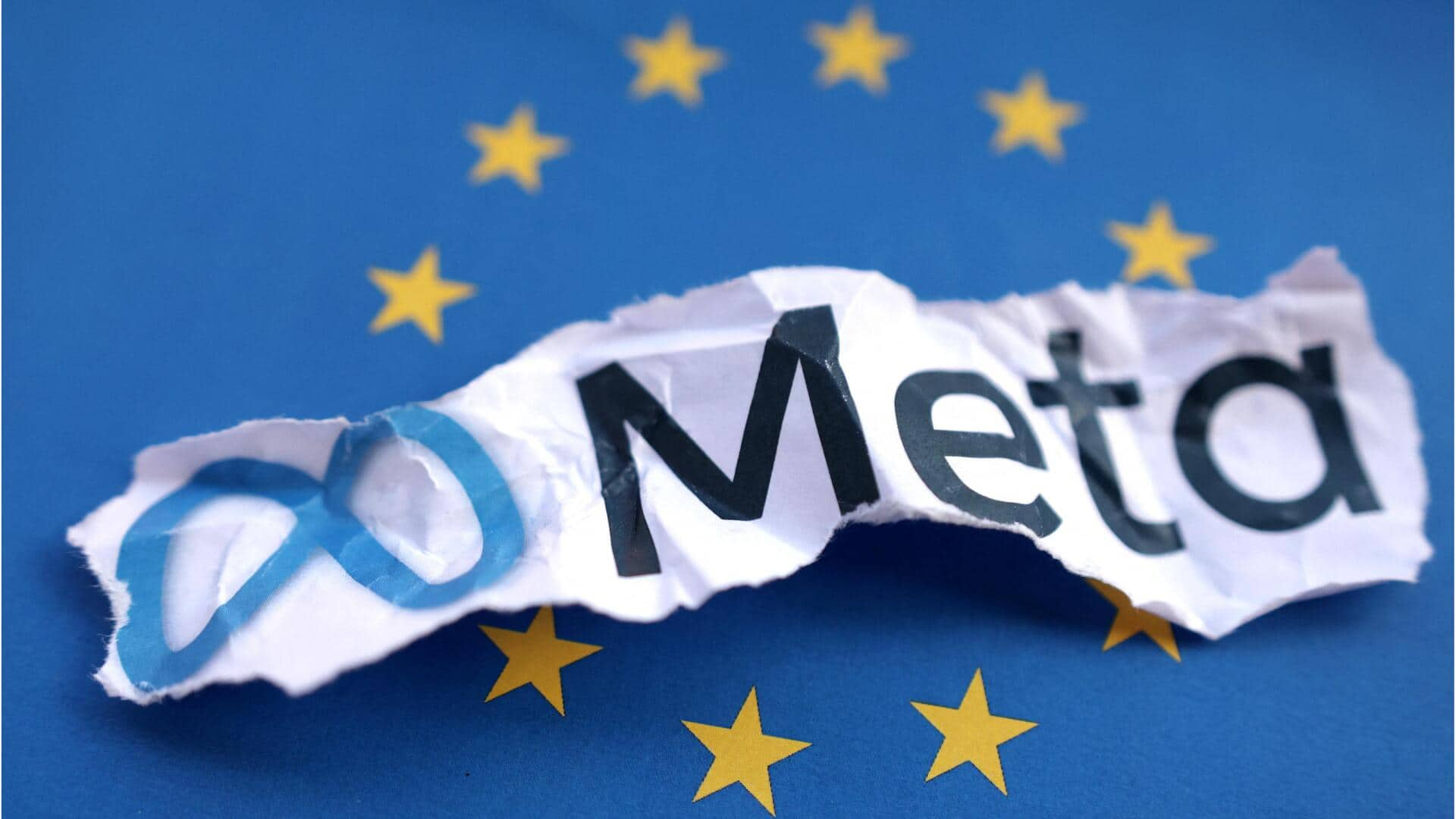
Meta refuses further changes to pay-or-consent model—may face additional fines
What's the story
Meta Platforms is unlikely to make any further changes to its pay-or-consent model, according to Reuters. The decision could lead to new EU antitrust charges and heavy daily fines against the company. Last month, the European Commission warned Meta about potential daily penalties after learning that the social media giant would only make minor adjustments to its model in order to comply with the EU's Digital Markets Act (DMA).
Regulatory scrutiny
Meta was previously fined €200 million for violating DMA
The EU antitrust enforcer previously fined Meta €200 million ($234 million) in April for violating the DMA with its pay-or-consent model. The penalty was imposed for breaching the DMA from November 2023 to November 2024, when the model was first introduced. In November 2024, Meta modified this approach by using less personal data for targeted advertising. However, this change also drew more attention from the EU and led to further Commission comments in June this year.
Regulatory goals
What is DMA, and what's next for Meta?
The DMA is designed to rein in the power of Big Tech companies by establishing a set of rules they must follow. Despite the ongoing scrutiny, Meta isn't planning any further changes unless something drastic happens, Reuters reports. This stance could pave the way for new EU antitrust charges in the coming weeks and subsequent daily fines, possibly up to 5% of Meta's average daily global turnover starting June 27.
Market reaction
Stock dipped soon after the report was released
Following the Reuters report, Meta's shares fell by 1.7% in mid-session trading. The company has declined to comment on the matter but has previously stated its confidence in complying with the DMA. It also claimed that its options for Europeans exceed DMA requirements and accused the Commission of bias against its business model. Meanwhile, the Commission has refrained from commenting on this issue.